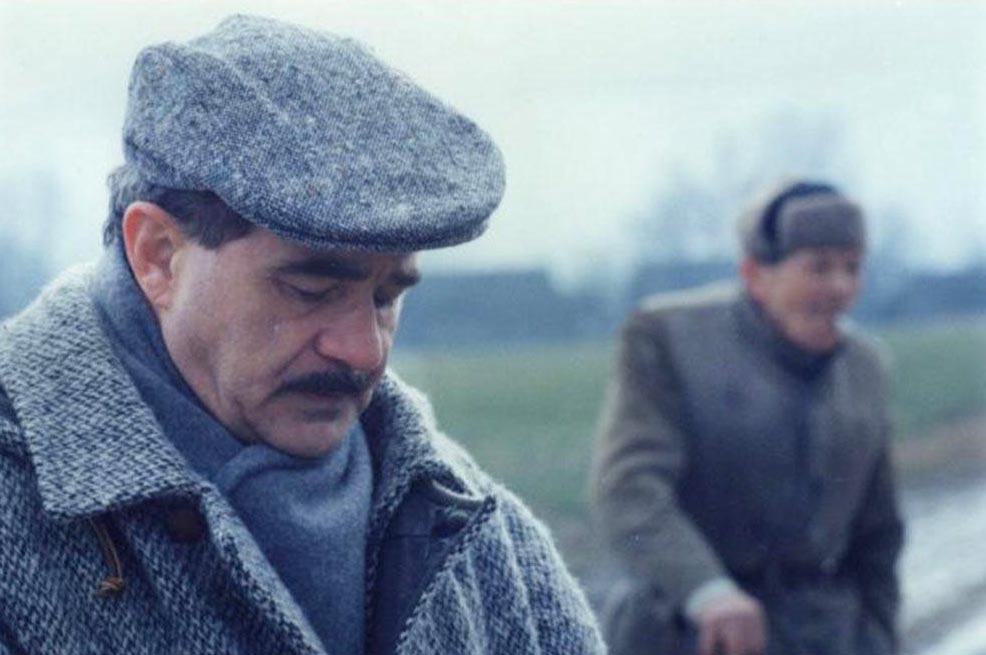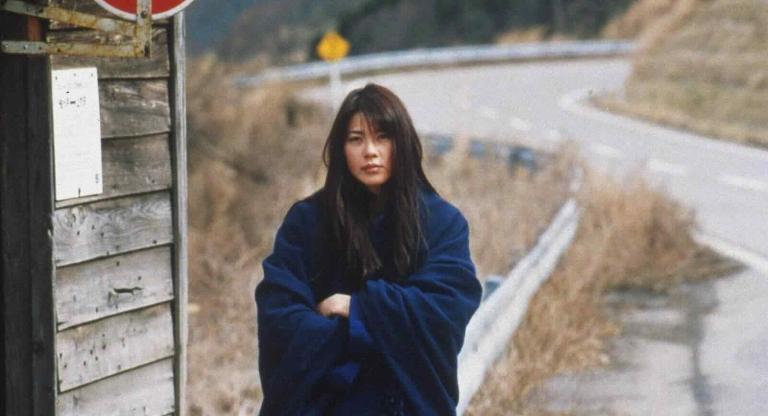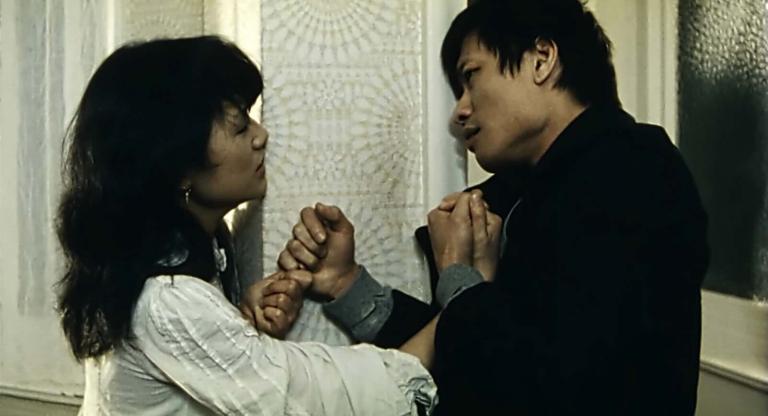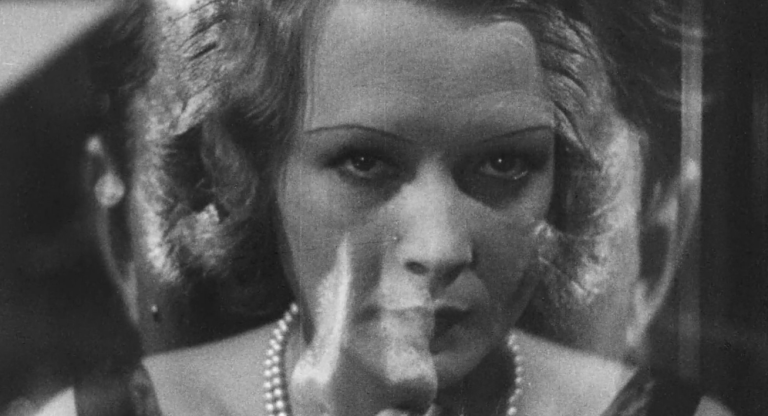Each of Paweł Łoziński’s films is an earnest endeavor to activate the dormant emotional potency of everyday life. His nonfiction works express an insistence, or perhaps a hope, that the mundanity of existence is masking something more—something easily discoverable if one has the discipline to look long and hard enough, or to ask the right questions. Łoziński anchors this process of discovery with different forms of containment. Many of his films are bounded by discrete spaces in his native Warsaw: a courtyard; an oncology ward; a residential block. For others, he imposes an archetypal structure: a road trip; a therapy session; a son’s quest to find his father. Łoziński is unconcerned with disguising his directorial hand, and across his filmography, his role is visible to varying degrees. Be he observer, listener, questioner, or character, his seeking and striving remain apparent, along with his constant pursuit of that elusive "something more.”
In The Balcony Movie (2021), Łoziński tests how much philosophical insight he can wring from a stretch of pavement. In an unavoidably comedic setup, he perches a camera on his balcony, where he hails unsuspecting passersby to discuss the meaning of life. The project’s eccentricity has a disarming effect for many of its characters, who proceed to divulge secrets, spread gossip, and reveal their inner lives. Yet for every person who offers an illuminating anecdote or confession, there’s another who Łoziński fails to reach. They miss or ignore him, offer excuses, or aren’t receptive to his questions. These stops and starts speak to the zig-zag patterns of life, but also the artistic process. In conversations with his subjects, Łoziński often changes his description of the project, and occasionally despairs of the point of his movie, or how he is to make it. Yet his dedication to the work is a clear throughline in the film, which he spent 165 days shooting over two and a half years. Though The Balcony Movie yields no shortage of spontaneous wisdom, ultimately Łoziński is left with what he had at the beginning: curiosity about people and commitment to the act of art-making, of returning to his balcony again and again for uncertain results. The process itself is a means and an end.
The Balcony Movie embodies an exploration of everyday-ness that has occupied Łoziński throughout his career. His attention to the local and immediate, however, do not preclude a broader scope, and history finds endless ways of seeping into his films. In Father and Son (2013), the director helms a camper van with his father, documentarian Marcel Łoziński; together, they travel from Warsaw to Paris, where Marcel was born in 1940 to Jewish Polish members of the French Resistance. Their intention of co-authoring a film about their journey disintegrated in the editing process, and each emerged with his own competing account of the trip. Their relationship is often contentious, and generational differences inform this dynamic. Marcel came of age during the early phases of Poland’s Communist era; he is a product of his time beyond his continued reference to Czechoslovakia or his admiration for a gas station convenience store’s bountiful selection. When Paweł laments the lack of security he felt as a child, by way of explanation, Marcel reminds him of the conditions of his own post-war boyhood; at a moment when European society was undergoing complete redefinition, security seemed an esoteric notion.
History and Jewish identity receive a more focused treatment in Birthplace (1992). The film follows Jewish writer Henryk Grynberg’s return to Radoszyn, the Polish village of his birth, where his family was forced into hiding during the German occupation. Fifty years later, Grynberg confronts his former neighbors, seeking the truth about his father’s disappearance. Birthplace is a propulsive historical document that elucidates a paradox of time—that the more one insists the past is dead, the better they ensure its persistence. Humans contrive such temporal ironies elsewhere in Łoziński’s films, where time, memory, and aging are ever present.
Like The Balcony Movie, The Way It Is (1999) is structured by the seasons of a year; winter replaces summer with rote inevitability. Yet for Mr. Szymanski, a retired hairdresser, the years have done nothing to quell the pain of his wife’s passing; he sees her in memory as vividly as he experiences his physical reality. The Way It Is is another of Łoziński’s hyper-local movies. The action largely plays out in an apartment building and its adjoining courtyard. Beds, sinks, benches, and trees quickly become familiar as the director gradually builds out the characters’ world.
Chemo (2009) is similarly spatially constricted, in this case to an oncology clinic day ward. Unlike the setting of The Way It Is, the ward is not a home, but a space for passing through, and Łoziński chooses to forego almost all geographic markers. Focusing on patients’ faces, he positions their appointments as ephemeral outtakes from their lives. He does allow occasional glimpses out the windows, where snow swirls, birds fly, and planes take off from a nearby airport. The recurring sound of planes suggests existential arrivals and departures that the patients know await them in the near or far future.
Perhaps the most curious entry in Łoziński’s oeuvre is You Have No Idea How Much I Love You (2016). The film documents a series of therapy sessions between a mother and daughter who wish to resolve the pain and acrimony of their relationship. Title cards at the film’s conclusion reveal the two women are not related. Rather, they drew from personal experience to enact the sessions, led with great dexterity by psychiatrist Bogdan de Barbaro. Each protagonist thus engages in the process on a slightly different plane of reality. For a documentarist so dedicated to life’s raw material, it is fascinating that he should adopt such a construct. While elsewhere, his films wade knee-deep in routine practicalities, You Have No Idea How Much I Love You tips over into a realm of almost pure emotion. It is this film, Łoziński’s most abstract, that delivers the clearest catharsis, distinct from his other works’ jagged edges, which so precisely replicate the contours of living.
“In the Neighborhood: The Films of Paweł Łoziński” runs December 2–4 at the Museum of the Moving Image.



